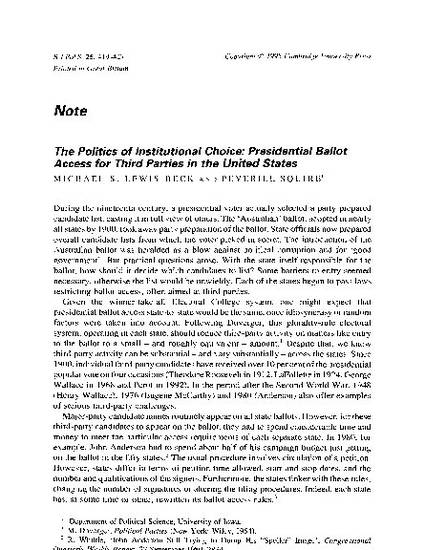
During the nineteenth century, a presidential voter actually selected a party-prepared candidate list, casting it in full view of others. The "Australian" ballot, adopted in nearly all states by 1900, took away party preparation of the ballot. State officials now prepared overall candidate lists from which the voter picked in secret. The introduction of the Australian ballot was heralded as a blow against political corruption and for "good government". But practical questions arose. With the state itself responsible for the ballot, how should it decide which candidates to list? Some barriers to entry seemed necessary, otherwise the list would be unwieldy. Each of the states began to pass laws restricting ballot access, often aimed at third parties.
Available at: http://works.bepress.com/michael_lewis_beck/159/
